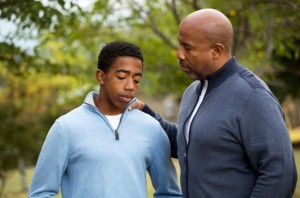“I’ve been waiting” could be one of the themes of my life. “God delivers “could be the second. As I sit here with my 21 year-old daughter and a friend in a trendy coffee shop, I realize how blessed my life seems right now. Of course it’s not “perfect” (as if there were such a thing), but God has given me so many of the desires of my heart.
Let me qualify this by saying that the desires of my heart have changed over the years as God trained me. Some of my key desires before my children were born were to finish my doctoral degree and to secure a meaningful job the area of community health or health behavior change. And after my children were born I simply wanted us all to “live happily ever after”. Easy peasy, right? Not so, I learned.
When my children came around and my sweet Katie was diagnosed with autism, everything changed. My goals in life were threatened. I quit working on my degree to research and create good therapy for Katie (there were not many programs 20 years ago). My plans of working at least part-time were replaced with surviving the upheaval of autism. “Happily Ever After” seemed long gone.
What I didn’t know at the time was that God hadn’t taken away my dream of happiness, He had just asked me to wait. He had things to teach me about what happiness really means. I learned it has little to nothing to do with having a degree, having a dream job or a perfectly healthy family. It has everything to do with realizing we’re not in control, that we can trust God with our lives, and that He delivers gifts at the perfect time.
God has blessed me beyond what I even knew that I needed or wanted. After four years of hard work fighting the effects of autism, He provided a lovely person to care for my children so I could finish my degree. After 20 years of raising children with special needs, He gave me a job teaching graduate students in Public Health. In the meantime, He gave me the opportunity to start two non-profit organizations, to write, speak, home-school and to explore new hobbies. My children taught me wonderful lessons about life and love–often as we walked through pain together. These are things I may not have tried nor learned had I been given the life I anticipated when I was 22 years old.
Overall, God knew me better than I know myself. He developed and used personal gifts I took for granted, and taught me to forgive myself for the gifts I wish I had but don’t. He made my life far more rich and interesting than any plan I could have devised.
As you wait for something in your life– a situation to change, a financial situation to be relieved, a health problem to be resolved or a special person to “come around”, remember that God’s timing is perfect and that He will deliver what is needed at the perfect time. He does not provide an overnight delivery service because He works through messy people and situations who or which need deep, heart level, or systemic change.
Easter is coming soon– but Good Friday comes first. When we learn, like Jesus, to be obedient to what God suggests for our lives, we will eventually witness the resurrection of who we really are. Nobody knew for sure the truth about Jesus until His death and resurrection. It took the death of his earthly body and of His personal will for Jesus to reveal who He really was– God incarnate– God on earth. Then He changed the world by the revelation of His true self. When we walk the path he puts in front of us, no matter the condition of the road, we will reach His intended destination for us. It may take months or years of obedience–but it’s good and worth the wait. Who are you? Obey– and wait– and see.






